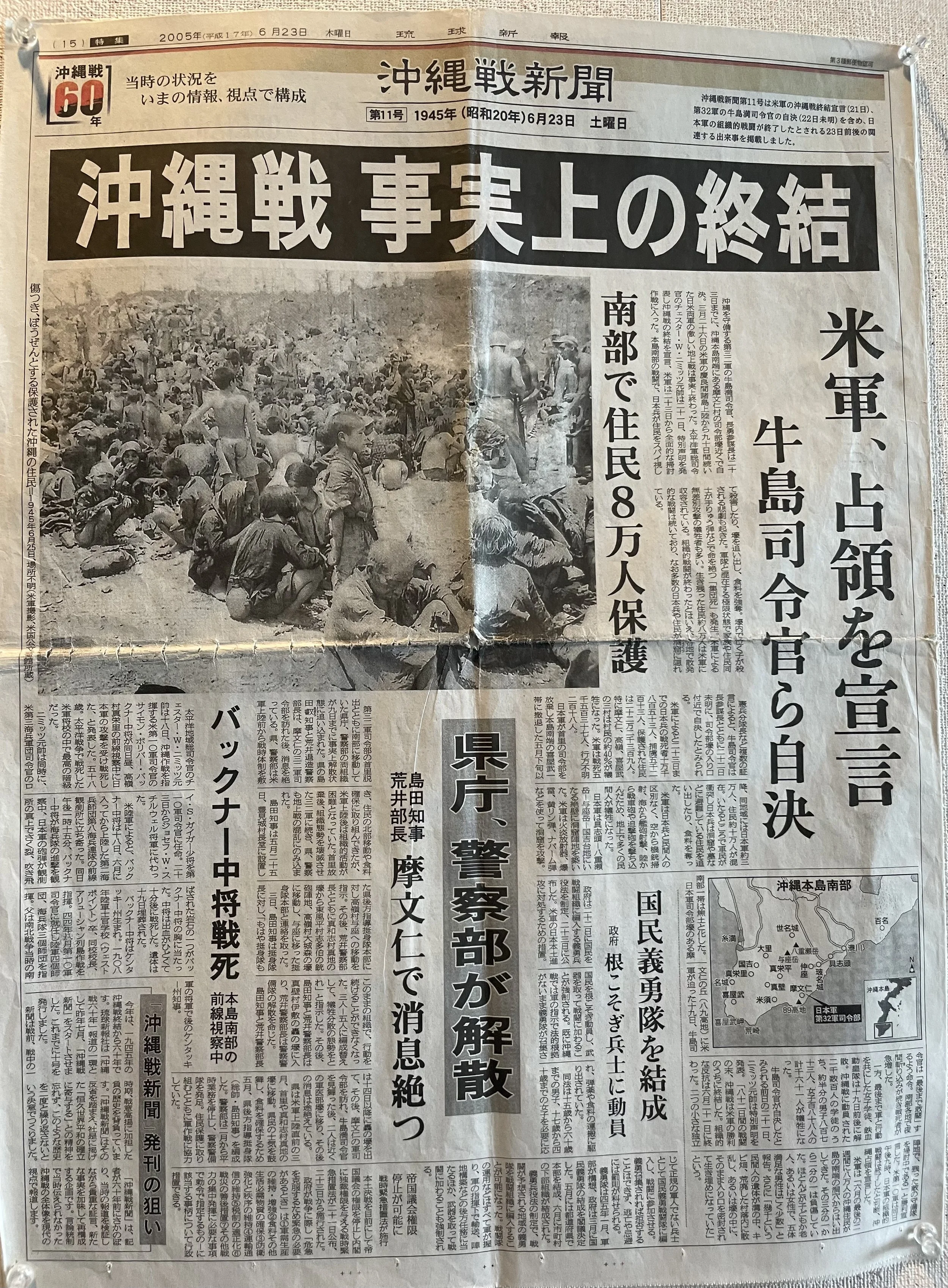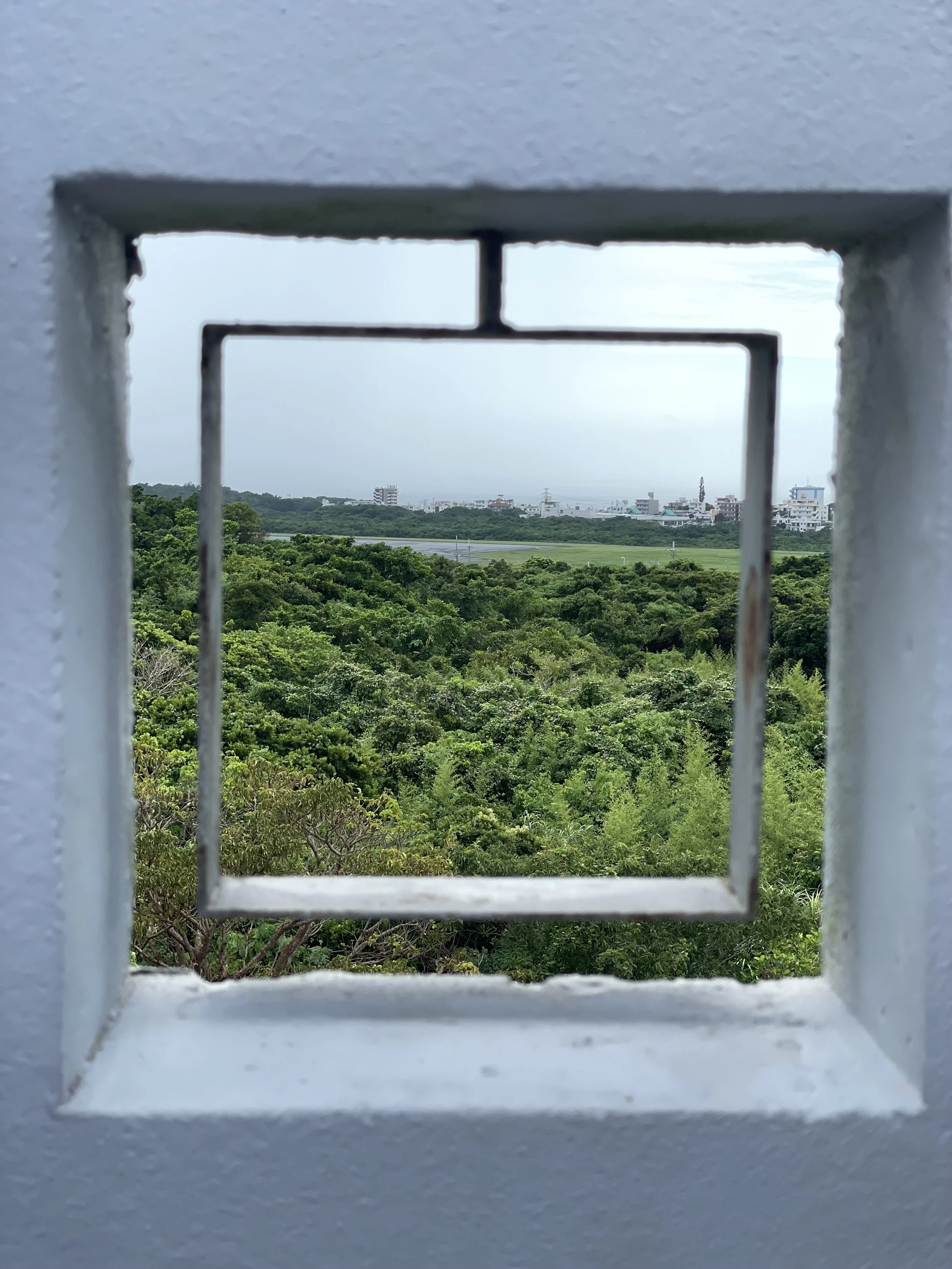Bridging the Divide: Choosing Humanity in the Face of Conflict
As I write, there is a heaviness in my heart. Thoughts swarm my mind about the complexities of ongoing conflicts, the divisions between people, and the seeming intractability of so many global struggles. Especially in light of recent events in the United States, it seems like the gap between opposing sides is becoming more polarized by the day.
But we have been here before. Instead of learning important lessons from history, it feels like society is trapped in a cyclic pattern, repeating the same toxic patterns again and again.
Recently, I visited Okinawa—a place etched with one of the darkest chapters of the Second World War. The Battle of Okinawa, which lasted 82 days from April 1 to June 23, 1945, was the bloodiest battle of the Pacific War. Casualties exceeded even the combined toll of Hiroshima and Nagasaki. Approximately 17,000 American troops lost their lives, while Japanese losses soared to more than 107,000.
Japanese Newspaper Announcing the End of the Battle of Okinawa
But the most staggering tragedy was borne by the Okinawan people themselves. Over 140,000 islanders perished—more than American and Japanese losses combined. Many of these deaths came from coerced civilian suicides. Civilians, taught to fear unspeakable brutality if captured, often chose to end their own lives and those of their families. Japanese soldiers even distributed hand grenades to encourage such acts.
Yet, in the midst of such darkness, there emerged a flicker of light.
In one cave, where 1,000 villagers hid in fear, the people prepared for mass suicide as American troops approached. Then, two young men spoke up. Having returned from Hawaii, they knew some English and believed they could negotiate with the U.S. soldiers. Against all odds, they convinced the terrified villagers to trust them. These two youths stepped into the unknown, spoke with the American forces, and saved every life in that cave.
What made the difference? Human connection.
While the Okinawan people had been taught to believe the Americans were nothing but ruthless killing machines, these two young men knew otherwise. They had lived among Americans and understood their humanity. Their lived experience clashed with the propaganda—and that difference preserved 1,000 lives.
This story carries a profound lesson for us today. We desperately need more people willing to see the human face across the divide. In conflicts big and small—whether international wars, social disparities, racial injustices, or political strife—we must remember that those on the other side are human too. These conflicts are complex with long-standing histories and ingrained social norms, yet we cannot forget that those we are dealing with our simply just people.
People are capable of connecting at deep levels and in incredible ways. As a human community, we are capable of creating new things, that is giving birth to something that does not currently exist, just like these two men saw the hope of life in the midst of dark despair.
Window of Hope: The Sun ONLY Shines through this Window on June 23, Commemorating the Battle’s End
But more importantly, people are capable of empathy. Empathy is the ability to understand and share the feelings of another. It is the ability to hold multiple truths at one time. Each side of a conflict has their own, unique experiences. In order to understand where the other side is coming from, we must first empathize with the other, put ourselves in their shoes, particularly in regard to their experiences with pain and trauma. Empathy is what creates the bridge in which we can step on to better prospects for a new future.
Like the two young men in the cave, we must be willing to step into the unknown, to risk trust, and to build connection where fear and division dominate. Creativity, patience, and sincerity are essential. But above all, it requires courage to transcend the divide and hold fast to our shared humanity.
For my family, this has meant crossing the divides that persist in East Asia, particularly among the Korean people. True reconciliation will not come through quick fixes or short-term gain. It requires long-term investment in relationships, genuine motives, and the willingness to cross difficult boundaries.
The question we all face is this: when the opportunity arises, will we be ready?
We may not agree with others in this life, but in our disagreeing, we should never disregard the humanity in others. We have the ability to do better.
May we be ready to step forward, just as those two brave young men did, and choose life, connection, and hope in the face of despair.

